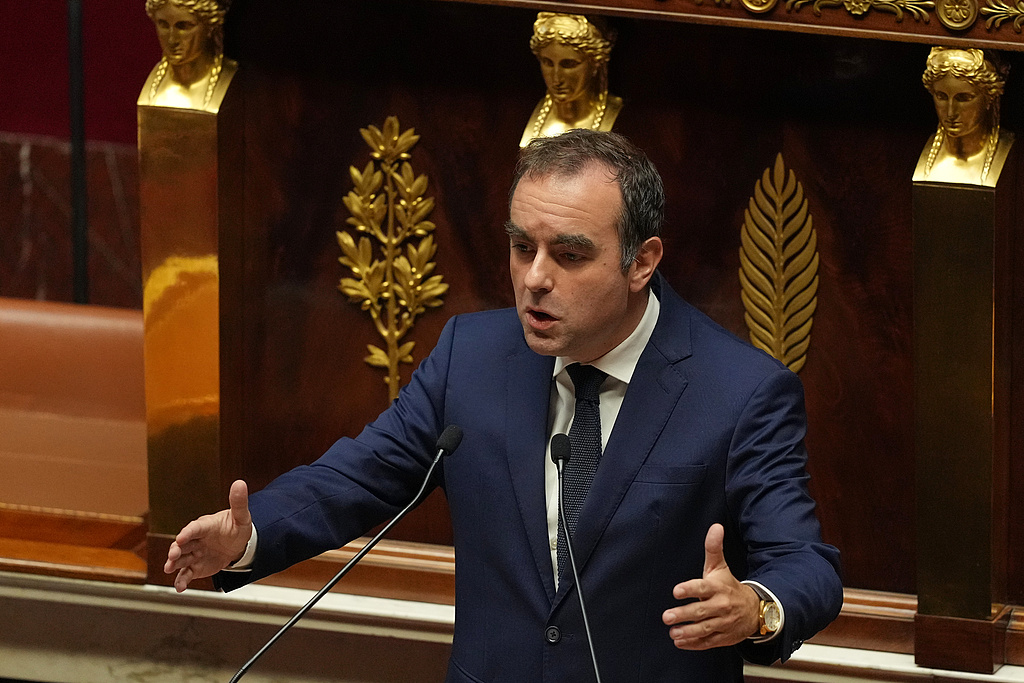
On October 16, 2025, two "no-confidence motions" against French Prime Minister Lecornu in the National Assembly ended in failure. The motion proposed by the far-left party La France Insoumise received 271 votes in support, while the motion from the far-right National Rally party garnered only 144 votes. Neither reached the 289-vote threshold required to overthrow the government. Although this victory has provided Lecornu's government with a brief respite, it has exposed the deep-seated structural contradictions in French politics—a combination of parliamentary polarization, party-political game-playing, and reform dilemmas, pushing this major European country to the brink of an "unprecedented political crisis."
I. Political Compromise Behind the Confidence Vote: Pension Reform in Exchange for Survival Space
The failure of the no-confidence motions is, in essence, a "stopgap measure" by Lecornu's government, where policy concessions were made to secure political support. Facing the dual pressure from the left-wing party La France Insoumise and the far-right National Rally, Lecornu chose to suspend the 2023 pension reform bill. This bill originally planned to gradually raise the minimum retirement age from 62 to 64 and was a core symbol of President Macron's "pro-business economic policies."
This compromise comes at a high cost. Government estimates show that suspending the reform will result in a 400 million euro fiscal loss in 2026, with the loss expanding to 1.8 billion euros in 2027. However, Lecornu had no other choice. Socialist Party MPs explicitly linked their support for the government to the suspension of pension reform, while the ruling coalition only holds 196 seats in the parliament, far from an absolute majority. The French newspaper Le Monde commented that this was a "gamble of trading short-term stability for long-term reform space," but whether it can truly resolve the crisis remains uncertain.
II. Parliamentary Polarization: From a "Tripartite Standoff" to Political Paralysis
The fragmentation and polarization of French politics are the root causes of the frequent no-confidence motions. After the 2024 National Assembly elections, the left-wing Nouveau Front Populaire (193 seats), the centrist Ensemble! (166 seats), and the far-right National Rally (142 seats) formed a "tripartite standoff"格局 (which can be translated as "tripartite stalemate" in this context), with no single party able to govern alone. This格局 has led the government's decision-making into a "minority dilemma": the ruling coalition has to seek opposition support on a case-by-case basis, while the opposition parties frequently exert pressure using parliamentary rules (such as no-confidence motions and the use of Article 49.3 of the Constitution).
In September 2025, former Prime Minister Bérú was ousted after proposing welfare cuts, facing a joint impeachment from the National Rally and the left-wing parties. He became the first French government to be overthrown by the parliament since 1962. Although Lecornu has survived this vote, Socialist Party MPs have warned that "not supporting does not mean giving a blank check," and the prospects for budget negotiations are filled with uncertainty. An expert from the French Institute of International Relations pointed out, "When the parliament becomes an 'arsenal' for the opposition, the government can only maintain its operation through continuous compromises, and the space for reform is severely compressed."
III. Reform Dilemma: The Dual Shackles of High-Welfare Debt and Political Compromise
The deep-seated contradiction in France's political crisis lies in the conflict between the high-welfare system and fiscal sustainability. Before his ouster, former Prime Minister Bérú bluntly stated that France had been "addicted to borrowing" over the past 50 years, with high-welfare expenditures and demands for security and public health pushing the public debt-to-GDP ratio above 120%. Political polarization has further exacerbated the resistance to reform. Welfare-cutting proposals put forward by the ruling party always face dual resistance from the left-wing parties, which advocate for "protecting vulnerable groups," and the far-right parties, which oppose "elitism."
Since taking office in 2017, President Macron has repeatedly pushed for pension reform, but all attempts have triggered large-scale protests. In March 2023, his government bypassed the parliament to directly pass the reform bill, sparking a joint no-confidence motion from the left-wing and far-right parties (although it failed, it caused his approval rating to plummet to 28%). Lecornu's suspension of the reform this time has temporarily quelled the controversy but has dealt a blow to Macron's signature "pro-business reform" policy. The French newspaper Les Échos pessimistically predicted, "France may fall into a vicious cycle of 'reform - protest - compromise' until fiscal collapse or political system reconstruction."
IV. A Microcosm of Europe's Woes: The Rise of Populism and Governance Failure
France's predicament is not an isolated case. German Chancellor Mertz recently publicly stated that Germany's economic capacity can no longer sustain its current social security system. Populist forces on the-right have also risen in Austria, Italy, and other countries, exacerbating the trend of political fragmentation in Europe. Analysts point out that if the far-right comes to power in the 2027 French presidential election, it may promote a "France First" policy, shaking the EU's decision-making mechanism and even triggering a "retreat of European integration."
The French public's disappointment with traditional political parties is growing. Recent polls show that only 15% of respondents have confidence in Macron's governance, 64% demand his resignation, and 33% hope for a new prime minister from the far-right National Rally. This shift in public opinion reflects the reality of an unsustainable high-welfare system, sluggish economic growth, and increasing social inequality. As Lecornu said, "We are at a crossroads of destiny. If we continue to follow the usual routines, the country will head towards the edge of a cliff."
V. The Balancing Act in a Democratic Dilemma
Lecornu's government's "narrow escape" has exposed the deep-seated contradictions in France's democratic system. Parliamentary polarization has weakened the government's decision-making ability, the conflict between the high-welfare system and fiscal sustainability has intensified political confrontations, and the rise of populism has further torn apart social consensus. In this game, although the prime minister's compromises have bought short-term stability, they have not resolved the fundamental problems. France's future depends on whether it can find a balance between political compromise and substantive reform—this is not only a challenge for France but also a question that the entire Europe needs to answer.

A new survey released in the United States shows that in the context of rising prices and growing concerns among the public about the economic outlook of the country, there is a coexistence of frugality and differentiation.
A new survey released in the United States shows that in th…
By the end of 2025, the situation in the Middle East resemb…
According to Channel NewsAsia, international oil prices hav…
On Sunday, US President Donald Trump Trump met with Ukraini…
Officials in the Trump administration, speaking on Fox News…
In 2025, the Trump administration reshaped the global trade…